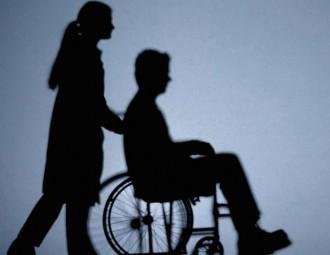Siarhei Drazdouski: Belarus needs an impetus to solve the problems of the disabled

On December 3 International Day of the Disabled was celebrated.
The UN General Assembly declared the 3rd of December an International Day of People with Disabilities not as a celebration, but as a reminder that disability still exists as the problem and barrier. The situation with the rights of the disabled in Belarus described Siarhei Drazdouski, the coordinator of the "Office on the Rights of Persons with Disabilities", in the talk with the EuroBelarus Information Service.
- This year brought rather unfortunate results for Belarus. Our country remains among the few countries in Europe, along with Tajikistan and Switzerland, that haven’t signed the Convention on Right of the Disabled. However, we can’t compare our situation with Switzerland, - tells Siarhei Drazdouski. – The laws in Switzerland excel the norms of the Convention; de facto all the norms are already fulfilled there.
Which can’t be said about Belarus, as the country lacks concrete actions and programs essential for signing of the Convention. And often the excuse of the Belarusan deputies is that our society is not ready to sign it.
Today we shouldn’t consider disability to be a problem, but rather the correlation between problems and external barriers that allow or not allow the person to be included in the society. We almost ignore the difficulties; however, it doesn’t mean we don’t have them. We don’t have the notion of discrimination, but we do have the phenomenon of discrimination.
One of the main problems for the disabled people is to lead an independent life. The suggested alternative to it are homes for the disabled: people with serious disabilities can move to the home for the disabled. In this situation a person cannot be included in the life of the society and lead a normal life.
The easiest way to assess the level of inclusion is to see whether the disabled are present in the streets, shops, offices and cinemas. Although one in twenty Belarusians are disabled, we practically don’t see them outside.
- Even the most successfully chosen state policy – barrier-free environment – is inefficient, if we assess its quality, - notes Siarhei Drazdouski. – The state urges entrepreneurs to create jobs for the people with disabilities; however, when infrastructure in poorly developed, the problem with the way to work appears. Ramps are not enough; public transport is still inaccessible for the disabled, who have to choose professions where they can work from home.
The same is true for education; Baranovichi State University is an exception to the rule, with special living accommodation, accessible main buildings and equipped laboratories.
- Thus, there are individual success stories in solutions for the disabled people in our country; but there is no system that would unite and develop them, - notes the specialist. – Convention is not some meaningless words. Some countries, which joined the Convention, have a number of problems with improving the situation for the disabled. However, they admit the presence of these problems and are working to solve them.
Signing of the Convention would help to build national policy aimed at work with the disabled and encourage both the society and the authorities to improve the situation in the country.
-
03.01
-
07.10
-
22.09
-
17.08
-
12.08
-
30.09



























